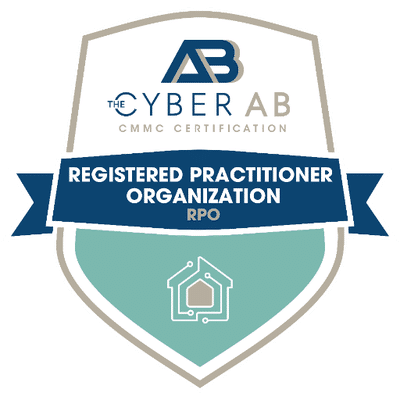It’s true that FedRAMP and CMMC share a few foundational data security goals. (Federal Risk and Authorization Management Program and Cybersecurity Maturity Model Certification, respectively.) Because of this, there’s a common misconception among cloud service providers that getting FedRAMP authorization automatically certifies you for CMMC as well.
Unfortunately, this is incorrect: One does not guarantee the other. In other words, there is no reciprocity between the two frameworks.
There is good news, though: Because of the amount of overlap, there is potential for reusability.
Let’s begin by getting to know each of these frameworks better.
What is FedRAMP?
The Federal Risk and Authorization Management Program is a government-wide program established by the United States Federal Government. It provides a standardized approach to security assessment, authorization, and continuous monitoring of cloud products and services.
While it plays a critical role in ensuring cloud security for the government, it also facilitates the adoption of cloud technologies for its various federal agencies.
What is CMMC?
The Cybersecurity Maturity Model Certification is a framework developed by the Department of Defense (DoD) specifically for vendors working with the agency. This pool of contractors and suppliers is also known as the Defense Industrial Base or DIB.
The CMMC has a more specific focus on ensuring security for Controlled Unclassified Information (CUI) – that is, protecting the government’s sensitive data.
Learn more: What is CMMC? A Brief Intro for CSPs Exploring Certification
FedRAMP vs. CMMC: What is the Difference?
There are many similarities between CMMC and FedRAMP, given that they are both designed to uphold cybersecurity standards between the United States Federal Government and its contractors. However, there are also several distinct differences, including in terms of implementation approaches, target audiences, certification models, and oversight mechanisms. This is due to the fundamental differences in their specific objectives and scopes with regard to cyber threats.
1 – Scope and Purpose
FedRAMP: This program assesses and authorizes any cloud service offering for use across the U.S. government. It provides the standard for security assessment, authentication, and continuous monitoring.
CMMC: This program, on the other hand, focuses specifically on assessing and certifying the cybersecurity maturity of providers working with the DoD. It aims to strengthen the protection of CUI within the DIB.
2 – Applicability
FedRAMP: Primarily applies to cloud service providers (CSPs) offering cloud services and products to U.S. government agencies.
CMMC: Applies to all contractors and suppliers working specifically with the DoD, including prime contractors, subcontractors, and suppliers.
3 – Certification Model
FedRAMP: Provides authorizations at different levels based on the sensitivity of the data being handled and the risk of exposure to their confidentiality, integrity, and availability. These include FedRAMP Low, Moderate, and High.
CMMC: Uses a model that measures cybersecurity maturity for protecting the confidentiality of CUI based on its sensitivity. These include Level 1 (Foundational), Level 2 (Advanced), and Level 3 (Expert).
Learn more: Decoding FedRAMP Baselines: Get to Know Low, Moderate, and High Impact Levels for Compliance
4 – Framework and Controls
FedRAMP: Utilizes a risk-based approach plus standards and guidelines from the National Institute of Standards and Technology (NIST), particularly NIST Special Publication 800-53 as its baseline security controls.
CMMC: Uses various cybersecurity standards including NIST SP 800-171 and NIST SP 800-172 plus additional practices and processes. It emphasizes the implementation of security controls and the standardization of cybersecurity best practices throughout an organization.
5 – Enforcement
FedRAMP: Each of the federal government agencies are responsible for ensuring the cloud service offerings (CSOs) they use remain compliant and have completed the FedRAMP authorization process either through agency sponsorship or through the Joint Authorization Board (JAB) Compliance is continuously monitored by FedRAMP and FedRAMP provides a centralized marketplace for federal agencies to access and verify compliance.
CMMC: Compliance is also verified and enforced through third-party assessments, but this is facilitated via the Cyber-AB. There is no centralized marketplace for authorized systems.
Handling Sensitive Information: Breaking Down the Difference in Scope Between CMMC and FedRAMP
There’s another lens through which we can view the fundamental differences between CMMC and FedRAMP. “CMMC wants you to follow your contract’s federal contract information (FCI) and CUI throughout your organization, and down to subcontractors as well,” says Linda Morales, 38North’s Sr. Director of Global Compliance. “Often, this information is more readily available and used at an organizational level, which is typically not covered under a FedRAMP authorization boundary.”
“FedRAMP is very specific to the flow of Federal data within a well-defined system boundary. That refers to the cloud services or cloud products each agency will use. Your scope for CMMC expands outside of a system boundary so you’ll have to pull in organizational resources and entities, and address how you’re protecting the data at that level as well. You’ll need to make additions to your scope.”
This means CMMC expects organizations to secure information that might be used across the entire organization, not just within specific systems. This is a broader approach compared to FedRAMP, which concentrates on securing information within specific cloud systems. You’ll need to consider how to expand your cybersecurity measures beyond individual systems to include resources and processes across the entire organization. In other words, how is your organization handling information beyond cloud services?
Reusability Between CMMC and FedRAMP
Now that we understand why it’s not possible to have reciprocity between CMMC and FedRAMP, let’s look at how one framework can help the other. “Reusability” means much of the work you’ve done and artifacts you’ve produced to achieve FedRAMP authorization can also be, well, reused to gain CMMC certification. That’s great for cloud services providers who want to streamline efforts and avoid duplicative efforts.
If you’re a cloud service provider looking into achieving CMMC certification, 38North can help. Our team of CMMC Registered Practitioners (RPs) are fluent in advanced cybersecurity practices. Book a consultation today.
Adapting FedRAMP Compliance for CMMC
Here’s what you can reuse between FedRAMP and CMMC:
1 – Security Controls and Documentation
“CMMC requirements are a subset of FedRAMP requirements based on NIST Special Publications,” says Morales. “So the requirements themselves are very similar, just a smaller number. You’ll have to make adjustments to expand your scope based on the new boundary, following the CUI into, throughout, and out of your organization.”
2 – Risk Management Framework
FedRAMP and CMMC are both risk-based management frameworks. You can identify overlapping controls, processes, and documentation requirements to leverage as a foundation for reuse.
3 – Continuous Monitoring Practices
Both FedRAMP and CMMC require continuous monitoring to ensure ongoing compliance. Existing ConMon practices developed for FedRAMP can be used to support CMMC requirements.
4 – Security Culture and Governance
Cloud service providers can reuse their existing security policies, procedures, and governance frameworks developed for FedRAMP to support CMMC requirements. This includes defining roles and responsibilities, implementing security training programs, and fostering a culture of cybersecurity awareness.
Get Expert CMMC Guidance from 38North
Another thing CMMC and FedRAMP have in common? Working with a consultant who understands your organization’s unique cybersecurity needs and challenges can help streamline the compliance process. 38North Security is an established Registered Provider Organization (RPO) with trained expertise recognized by the Cyber-AB. We’ll find the most efficient path to CMMC certification and/or FedRAMP ATO by tailoring our strategies to align with your business objectives and operational realities. Contact us today to book a conversation with one of our CMMC Registered Practitioners (RPs) to learn what 38North can do for you.





